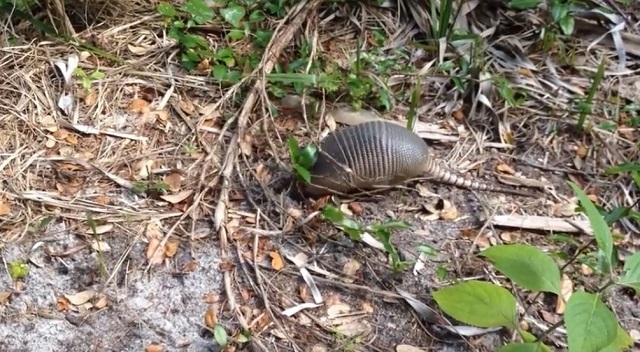
| Home | Mobile County | Mobile Wildlife | Prices | Contact Info |
Is Wild Animal Feces Dangerous To Touch or Breathe?
Something that is becoming more and more common among homeowners is seeing wild animals in the yard or even in their
homes. With increased human development, animals have been invading further and further into human territories in
search of food and shelter. There are lots of reasons why you must keep a Mobile wild animal from sharing part of your
property or home. Apart from the nuisance they can be to humans, they can cause health hazards. A bite from a
wild animal can cause rabies, which is one of the most dangerous animal diseases that can easily be transmitted
to humans through saliva. If you avoid coming in contact with the wild animal on your property, you should also
be wary of the feces. There are lots of diseases found in wild animal feces which can easily be transmitted to
human. That is why you should avoid touching or breathing wild animal feces by all means.

Roundworm Disease in Wild Animal Feces
Roundworm is one of the most infectious diseases associated with wild Alabama animal feces. Wild animals normally excrete the eggs through their feces, and the eggs are small enough to fly on the air and cause airborne diseases in humans. An unsuspecting human can easily inhale the eggs which will get into the respiratory system and move down to the intestine where it will hatch and cause serious health hazards to humans. Some of the symptoms associated with roundworm include: inability to control the muscles, tiredness, inability to coordinate the body, loss of vision and even coma.
The Leptospirosis in Wild Animal Feces and Urine
Wild animals can easily spread leptospirosis through their urine and feces. It is a bacterial infection which can easily affect both humans and other Mobile animals. The disease can be contracted when you have an open cut on your hand and you touch wild animal feces. Some of the symptoms associated with leptospirosis include: anemia, vomiting and nausea, diarrhea, high fever, muscle ache and severe headache, liver and kidney failure and meningitis.
The Salmonella Disease in Wild Animal Feces
Salmonella is a bacterial infection associated with Alabama wild animal feces. This can easily infect humans through accidental ingestion or by moving the microorganism from the hand to the mouth. If in a dry environment, these organisms are known to have the ability to stay dormant for a long period of time. It is a food poisoning with the following symptoms: severe diarrhea, high fever and abdominal pain. For that reason, you must avoid coming close to wild animal feces to avoid breathing or touching it, which will result in serious health hazards.
Campylobacter Disease in Wild Animal Feces
The Campylobacter disease is found in wild animal feces. These germs are known to cause severe gastrointestinal symptoms. This is not really dangerous when compared with other infections associated with wild animal feces, but people with weakened immune systems will feel severely ill when infected with Campylobacter. Therefore, you should completely stay away from wild animal feces.

Go back to the Wildlife Removal Mobile AL home page.

Roundworm Disease in Wild Animal Feces
Roundworm is one of the most infectious diseases associated with wild Alabama animal feces. Wild animals normally excrete the eggs through their feces, and the eggs are small enough to fly on the air and cause airborne diseases in humans. An unsuspecting human can easily inhale the eggs which will get into the respiratory system and move down to the intestine where it will hatch and cause serious health hazards to humans. Some of the symptoms associated with roundworm include: inability to control the muscles, tiredness, inability to coordinate the body, loss of vision and even coma.
The Leptospirosis in Wild Animal Feces and Urine
Wild animals can easily spread leptospirosis through their urine and feces. It is a bacterial infection which can easily affect both humans and other Mobile animals. The disease can be contracted when you have an open cut on your hand and you touch wild animal feces. Some of the symptoms associated with leptospirosis include: anemia, vomiting and nausea, diarrhea, high fever, muscle ache and severe headache, liver and kidney failure and meningitis.
The Salmonella Disease in Wild Animal Feces
Salmonella is a bacterial infection associated with Alabama wild animal feces. This can easily infect humans through accidental ingestion or by moving the microorganism from the hand to the mouth. If in a dry environment, these organisms are known to have the ability to stay dormant for a long period of time. It is a food poisoning with the following symptoms: severe diarrhea, high fever and abdominal pain. For that reason, you must avoid coming close to wild animal feces to avoid breathing or touching it, which will result in serious health hazards.
Campylobacter Disease in Wild Animal Feces
The Campylobacter disease is found in wild animal feces. These germs are known to cause severe gastrointestinal symptoms. This is not really dangerous when compared with other infections associated with wild animal feces, but people with weakened immune systems will feel severely ill when infected with Campylobacter. Therefore, you should completely stay away from wild animal feces.

Go back to the Wildlife Removal Mobile AL home page.